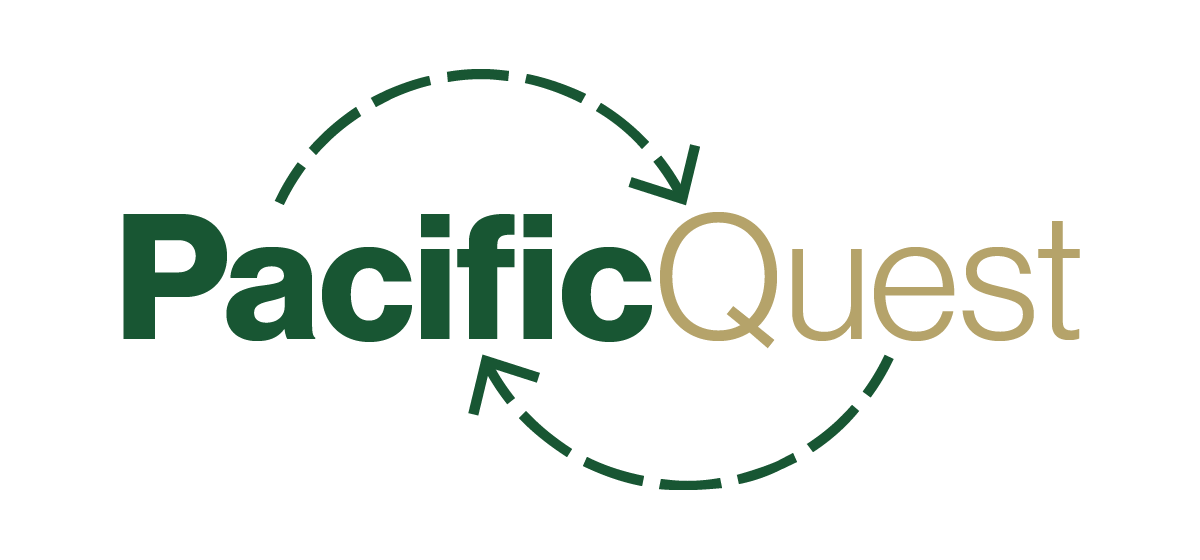Learn More About PUC

Pacific Quest
June 29th -July 4th: PQSeek
July 6th - July 11th: PQRise, PQSoar, PQFlix
View Programs Frequently Asked Questions
PacificQuest programs are for students in grades 6-12. Each program is a week-long summer intensive held on the PUC campus for students who are inquisitive, motivated, want to be challenged academically, and get a head start with college early. Students will participate in academic programming in areas of STEM, Aviation, and Film with daily worships, recreational opportunities, team-building exercises, and evening activities. Selection criteria are unique to each program. Students who fully participate and successfully complete the week of programming earn 1 unit of college credit.
College Early Summer Programs
Students who complete the program earn 1 unit of college credit.





PQSeek
Grades 6-8
Location & Dates
June 29th - July 4th - Pacific Union College Campus
$750
Cost for PQSeek for the one week program.
Learn More
STEM I Program: Students will participate in daily academic programming guided by PUC professors that focus on thermochemistry, human performance, and planet health. Applicants should be academically high achieving, earn high grades and/or test scores, and excel in STEM subjects. Students who complete the program earn 1 unit of college credit.
Read More
Thermochemistry (Dr. Robert Wilson, Chemistry Department)
All chemical reactions include a change in energy. We study this in thermochemistry, a branch of chemistry that describes the energy changes that occur during chemical reactions. Of particular interest are combustion reactions. These reactions are not only used to heat our homes, power our vehicles, and cook our food, but they are also how our body uses food for our biological engine. We call this process metabolism. In the classroom we will examine how we measure the energy of reactions and predict others.
In the laboratory we will explore several reactions that will demonstrate thermochemical properties. A calorimetry experiment will be conducted to carefully measure the heat of a reaction. We will also combust several food items to demonstrate their energy content.
Planet Health (Dr. Bryan Ness, Biology Department)
Human health is important to support, but it is often forgotten that for humans to be healthy the planet also needs to be healthy. Humans depend on nature to supply the food and other resources needed for survival. When the planet is not healthy it will be all that much more difficult to maintain human health.
This class will explore what it means for the planet to be healthy by looking at the characteristics of healthy oceans, rivers, lakes, and forests. We will study the factors such as climate change, pollution, habitat destruction, and eutrophication that can lead the planet’s ecosystems to experience poor health. We will explore how healthy ecosystems are resilient and can resist permanent damage from things like storms and fires. Lastly, we will learn ways that humans can monitor and help maintain a healthy planet with hands-on activities in the natural ecosystems near the PUC campus.
Human Performance (Dr. Wayne Borin, Kinesiology and Health Sciences Department)
There are numerous human biological systems working in unison with anatomical structures assisted by physiological functions which contribute to human performance. The application and study of human performance ranges from basic daily activities to athletic abilities, to disease prevention. This course will introduce you to the remarkable interaction of the Cardiovascular, Respiratory, Musculo-Skeletal, Neurological, and Nutritional Energy systems.
In the classroom setting we will discuss and investigate theoretical concepts related to human performance. We will then apply these theories in laboratory and field settings to evaluate such biometric measurements as: cardiovascular fitness, muscular strength, muscular endurance, flexibility, body composition, agility, coordination, balance, speed, and reaction time.
Join us for this fascinating adventure, learning about and assessing human performance.
Apply Now Frequently Asked Questions
Application deadline: Friday, May 9th at 5 pm

PQRise
Grades 9-11
Location & Dates
July 6th - July 11th - Pacific Union College Campus
$750
Cost for PQRise for the one week program.
Learn More
STEM II Program: Students will participate in daily academic programming guided by PUC professors that focus on thermochemistry, human performance, and planet health. Applicants should be academically high achieving, earn high grades and/or test scores, and excel in STEM subjects. Students who complete the program earn 1 unit of college credit.
Read More
Thermochemistry (Dr. Robert Wilson, Chemistry Department)
All chemical reactions include a change in energy. We study this in thermochemistry, a branch of chemistry that describes the energy changes that occur during chemical reactions. Of particular interest are combustion reactions. These reactions are not only used to heat our homes, power our vehicles, and cook our food, but they are also how our body uses food for our biological engine. We call this process metabolism. In the classroom we will examine how we measure the energy of reactions and predict others.
In the laboratory we will explore several reactions that will demonstrate thermochemical properties. A calorimetry experiment will be conducted to carefully measure the heat of a reaction. We will also combust several food items to demonstrate their energy content.
Planet Health (Dr. Bryan Ness, Biology Department)
Human health is important to support, but it is often forgotten that for humans to be healthy the planet also needs to be healthy. Humans depend on nature to supply the food and other resources needed for survival. When the planet is not healthy it will be all that much more difficult to maintain human health.
This class will explore what it means for the planet to be healthy by looking at the characteristics of healthy oceans, rivers, lakes, and forests. We will study the factors such as climate change, pollution, habitat destruction, and eutrophication that can lead the planet’s ecosystems to experience poor health. We will explore how healthy ecosystems are resilient and can resist permanent damage from things like storms and fires. Lastly, we will learn ways that humans can monitor and help maintain a healthy planet with hands-on activities in the natural ecosystems near the PUC campus.
Human Performance (Dr. Wayne Borin, Kinesiology and Health Sciences Department)
There are numerous human biological systems working in unison with anatomical structures assisted by physiological functions which contribute to human performance. The application and study of human performance ranges from basic daily activities to athletic abilities, to disease prevention. This course will introduce you to the remarkable interaction of the Cardiovascular, Respiratory, Musculo-Skeletal, Neurological, and Nutritional Energy systems.
In the classroom setting we will discuss and investigate theoretical concepts related to human performance. We will then apply these theories in laboratory and field settings to evaluate such biometric measurements as: cardiovascular fitness, muscular strength, muscular endurance, flexibility, body composition, agility, coordination, balance, speed, and reaction time.
Join us for this fascinating adventure, learning about and assessing human performance.
Apply Now Frequently Asked Questions
Application deadline: Friday, May 9th at 5 pm

PQSoar
Grades 9-12
Location & Dates
July 6th - July 11th - Pacific Union College Campus
$750 plus $250 for lab fees ($1000 total)
Cost for PQSoar for the one week program.
Learn More
Aviation Program: Students will have an immersive aviation experience as they discover a love of flying. Activities will include flight simulation, an aviation field trip experience, and flying an airplane.
Apply Now Frequently Asked Questions
Application deadline: Friday, May 9th at 5 pm

PQFlix
Grades 9-12
Location & Dates
July 6th - July 11th - Pacific Union College Campus
$750
Cost for PQFlix for the one week program.
Learn More
Film Program: Students will have immersive film experience as they learn the art of visual and narrative storytelling. They will work alongside peers who are interested in filmmaking to produce a film.
Application deadline: Friday, May 9th at 5 pm
Frequently Asked Questions
General
What are some perks of the PacificQuest programs?
What is the program fee, what does it cover, how do I pay, and when is the full payment due?
Where and what will my student eat?
Does my student need additional money during the week?
When and where do we drop off our student?
Driving directions to the Pacific Union College campus are found on our getting to PUC page.
Students should be dropped off on the PUC campus at Winning Hall on Sunday afternoon, the day that the program begins. Signs will be posted directing you to this location but please also see the PUC campus map.
We invite parents and family members to stay for dinner that is typically served at 5:30 pm. This is an opportunity for you to meet the PacificQuest program faculty and staff and to hear about the week ahead. We ask that all family members leave campus following dinner. Official programming begins at 7 pm.
Those parents and/or other family who require accommodations the same Sunday night can view our list of lodging options.
When and where do we pick up our student?
The program ends on Friday by noon. There is a program that begins with worship at 9am in Davidian Hall room 205. Signs will be posted directing you to this location but please also see the PUC campus map. Students present what they learned for the week and awards are given to all students. Parents and family are encouraged to attend this event. The program typically ends by noon. Afterwards students are "released" back to their parent or guardian.
How do we arrange transportation if my student will travel by air?
Pick up and drop off students flying into and out of Sacramento International Airport (SMF) can be arranged but carries an additional fee. If your student uses air travel, be sure to indicate this on the online participant questionnaire and provide a copy of the travel itinerary. The drive time between the airport and PUC campus is approximately two hours. Please add $35 to your payment for pick up or drop off. Please add $70 to your payment for pick up and drop off. (PacificQuest does not offer pick up or drop off service for other airports)
- Students traveling by air must arrive at SMF on Sunday by 12:00 pm. Pick up will occur between 12-1 pm and students will need to wait at the airport baggage claim area until then. Students cannot be picked up later than 1 pm.
- Students traveling by air must depart SMF on Friday after 3:00 pm. Students will be dropped off in time to make a 3:00 pm or later flight. Students will be supervised until they have passed through the Security Gate. At that point, our staff is no longer responsible for the students.
Where does my student stay? Where do they sleep?
Each student is assigned to a PUC Residence Hall and shares the room with a roommate. There is a private restroom with shower that is shared between two adjoining dorm rooms. Rooms have two twin beds that require bedding. Be sure that your student brings his or her own bedding, pillow, and towels.
In their residence hall, all students stay within a few doors of each other. Counselors stay in the residence hall and on the same floor as the students. The Counselors are responsible for ensuring that students are in their rooms in the evening and that they are on time to the morning Worship. Outer residence hall doors are secured at night and students may not exit.
If your student has a roommate request, be sure to indicate this on the online participant questionnaire.
